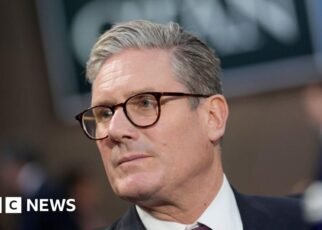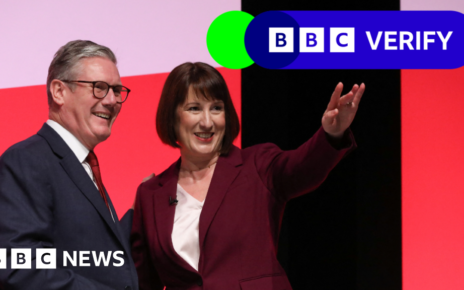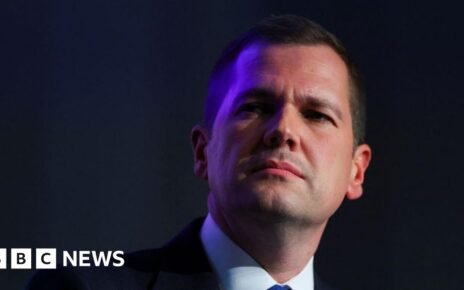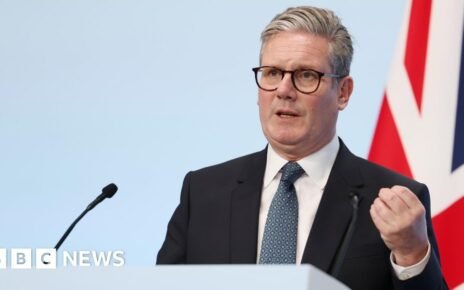Another day, another set-piece moment for the new prime minister.
Sir Keir Starmer will complete a hat-trick of made-for-the-cameras events in just a week, when he hosts a gathering of more than 40 European leaders in Oxfordshire today.
Its just a day after the parliamentary pageantry of the King’s Speech and a week after the Nato summit and his visit to the White House in Washington.
So what do those moments tell us about the new government – and the new PM?
Back at Westminster, the new-look House of Commons (remember, more than half the new MPs are novices, just elected this month) will begin digesting the King’s Speech.
It amounted to a hefty set of plans from a government with a large majority.
It is a government in a hurry too, keen to capitalise on the momentum of their win less than a fortnight ago, by cracking on at home and abroad.
Political parties all carry folk memories, collective reflections of past perceived mistakes and a desire to avoid repeating them.
Some from the New Labour era in the late 1990s feel, with hindsight, Sir Tony Blair didn’t do as much as he could have done when his political powers were at their greatest.
They are determined that mistake, as they see it, isn’t repeated.
And so we saw the longest speech from the monarch at a State Opening of Parliament for 20 years and one of the longest since the Second World War.
It’s worth reflecting that there is more to governing than legislating, and even powerful governments can get sidetracked.
But the scale of Sir Keir Starmer’s win at the election means we should assume most of the ideas will actually happen.
The era of small majorities, big rebellions and ideas going wobbly very quickly may well be over, for now at least.
Sir Keir has the opportunity to begin to mould the country in his image, as he embraces a more interventionist, muscular state and a leftward political tilt – take the idea of the railways returning to public ownership, for instance.
But to state the obvious and they know this – the hard work starts now for the government.
The paegentry in Westminster was bookended by events on the international stage.
Two of these three events – the trip to the Nato summit and the EPC – were in the diary anyway, for whoever was in government, but as a trio of commitments they amount to very useful stages from which a newbie government can try to establish itself.
Today’s summit is a meeting of the relatively new European Political Community, or EPC, taking place at the birthplace of Sir Winston Churchill, Blenheim Palace.
It is an informal club of countries, some in the European Union and plenty, like the UK, which are not.
Countries take it in turns to host its get togethers, and as luck would have it for Sir Keir, it is the UK’s go.
The prime minister is talking up what he calls a “reset” with Europe, with border security at its heart.
Ministers hope that the new government’s commitment to remaining within the European Convention on Human Rights, which some Conservatives flirted with abandoning, will open up the prospect of discussions with some countries such as Germany which didn’t happen before.
Sir Keir faces domestic criticism from the Tories that he has abandoned their idea of sending some people arriving on small boats to Rwanda.
He will argue that he is already redeploying more than 100 Home Office staff from the Rwanda scheme to what is being called a “rapid returns unit” to help secure the UK’s borders.
Then there is the question of Ukraine, and European security – particularly in the context of the prospect of a second presidential term for Donald Trump in the United States.
His pick for vice president were he to win, JD Vance, said days before Russia’s full-scale invasion of Ukraine that he “doesn’t really care what happens” there “one way or the other.”
It poses big questions for President Volodymyr Zelensky of Ukraine, for Nato and for European security – all topics for today’s gathering.
This week the PM has the chance to set the tone for his government on the domestic front – and on the international stage.
“Change” is one of the most powerful words in politics and Labour very successfully harnessed it in the general election campaign.
But it’s one thing promising it. Another actually making it happen, however many set piece moments your opening fortnight in office serves up.



